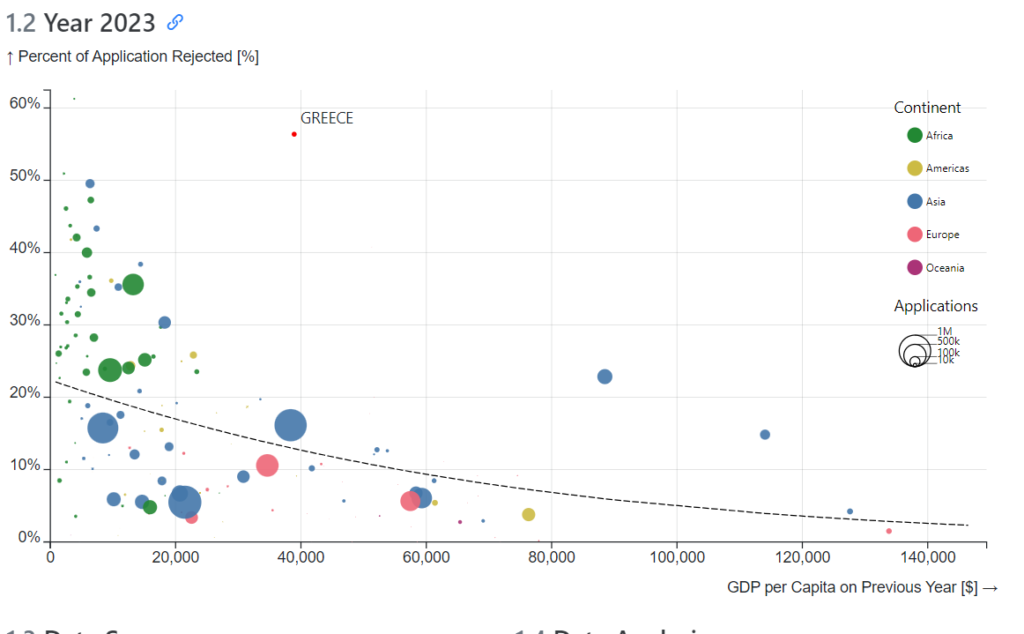Europe
EU, UK Minting Millions From Rejected Visa Applications: New Report. Lago Collective published a report has revealed that the European Union and the United Kingdom are generating millions from rejected visa applications. The combined revenue from these denials is estimated to be around $200 million, with the European Union alone earning approximately $139 million from application fees for rejected visas last year. Similarly, the UK garnered $56 million in 2023 from rejected visa applications.
Financial Burden on Low-Income Countries
An official from Lago Collective noted that the majority of rejected visa applicants come from low- and middle-income countries, particularly in Asia and Africa. This process effectively transfers money from poorer countries to wealthier ones, exacerbating financial disparities. The rejection rate for applications from African countries like Ghana, Senegal, and Nigeria is particularly high, ranging from 40% to 50%.

Hidden Costs and Economic Impact
Lago Collective highlighted that the costs for applicants extend beyond the basic application fees. Many individuals pay additional charges to private agencies and brokers involved in processing visa applications. Moreover, the inability to travel for business or leisure results in significant economic losses for applicants. These hidden costs add to the financial strain on individuals from low-income countries.

Increasing Visa Fees in 2024
Adding to the burden, visa application fees for traveling to the EU have increased in 2024. Fees for individuals aged 12 and above have risen from €80 to €90, while fees for children between six and 11 years old have increased from €40 to €45. This rise in fees further strains applicants, many of whom already face financial challenges.
Frustration Over Vague Rejections
Numerous applicants express frustration over the often vague and unclear reasons for visa rejections. Even after addressing previous issues and reapplying, new grounds for rejection are frequently cited. For instance, Pakistanis invested $5.7 million in UK visa applications that were ultimately rejected. Additionally, 20% of Indian tourist visa applications were rejected by the UK last year, along with 22% from Sri Lanka, 36% from Bangladesh, and 38% from Pakistan.
“Reverse Remittance” Phenomenon
This phenomenon, often referred to as “reverse remittance,” channels substantial funds from applicants in poorer nations to wealthier countries. As people in India and other low-income countries strive to settle abroad in places like the Schengen nations, the United Kingdom, or Canada, the high rate of visa rejections poses significant challenges. These financial barriers hinder their aspirations and further perpetuate economic disparities between countries.
In summary, the recent report sheds light on the substantial revenue generated from rejected visa applications and the financial burden it places on applicants from low-income countries. The increasing visa fees and vague rejection reasons add to the challenges faced by individuals striving for better opportunities abroad.

